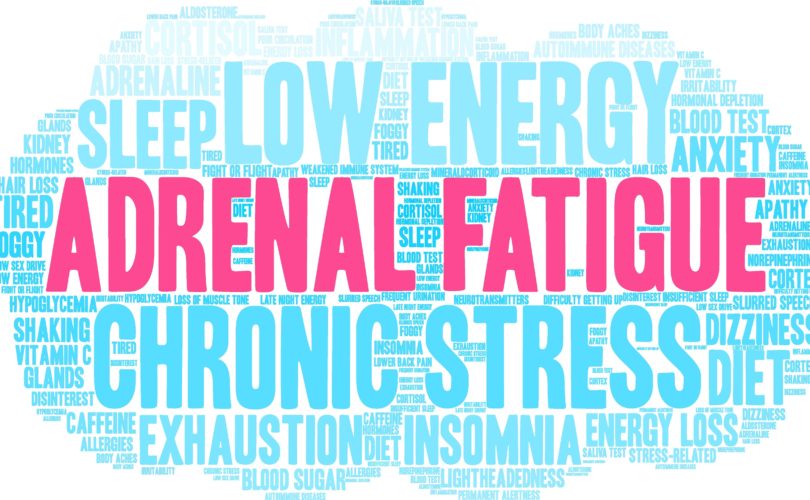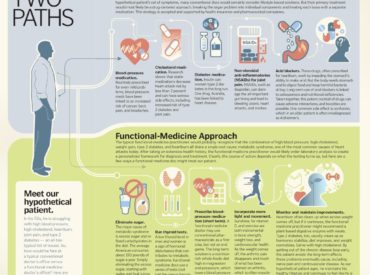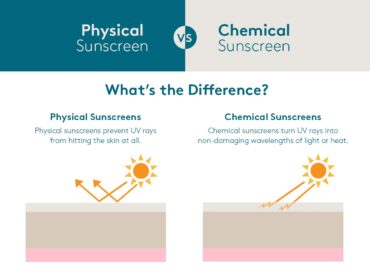Adrenal glands, which are little glands that sit on the top of your kidneys, are important because they help you respond to stress. If you have chronic stress, your adrenals can take a beating, your energy plunges and it becomes difficult to control your life. What are common symptoms of adrenal fatigue or dysfunction? You feel “tired and wired” at the same time, experience anxiousness, have trouble sleeping, crave sugar or salt, have dizziness when you turn quickly or stand up, or you have low blood pressure.
Prolonged, unrelenting stresses of everyday life including those emanating from our families, relationships, work, news, and social media create an overstimulating environment which prohibits us from taking a pause in our lives. Add a global pandemic, an election year, and economic hardships and you have a pot of boiling over stress! Some families are living in tight quarters with one or both parents juggling work and helping their kids home school. Yikes! This has resulted in a pandemic of adrenal overdrive.
I had my cortisol levels checked with saliva testing to see how my adrenals were holding up although I kind of knew the answer as I was wired and tired and quit sleeping. My results showed that my adrenal glands were struggling and it has been a bumpy ride. My cortisol levels were low upon waking and mid-morning. My body was having difficulty navigating the stresses of my life.
What am I doing to heal my adrenals? It comes down to minimizing stress (eliminating caffeine and rigorous exercise—they tax the adrenals), maximizing those things that support good adrenal function (relaxation, nutrient rich food, adrenal supportive supplements, and drinking lots of water), and establishing a healing environment in my home.
Here are three steps you can take to heal adrenal dysfunction:
1. Eat Foods that Support Adrenal Health
Diet is critical when it comes to adrenal recovery. There are foods that offer adrenal support, helping to replenish your adrenal energy so your body can come back to balance. I know some of these foods might be new to you, but now’s the time to let your guard down and dive in!
Foods to add to your diet include:
- Coconut
- Olives
- Avocado and other healthy fats (e.g., nut and seed butters)
- Cruciferous vegetables (cauliflower, broccoli, brussels sprouts, etc.)
- Nuts (e.g., almonds, walnuts and cashews)
- Seeds (e.g., pumpkin, hemp and chia )
- Kelp and other seaweed
- Himalayan sea salt (I consume a few pinches of coarse salt a day)
- Fermented foods rich in probiotics (like kimchi, kefir, yogurt, sauerkraut)
- Medicinal mushrooms (e.g., chaga, reishi, cordyceps)
Since I eat predominately a plant-based diet, I didn’t include fatty fish (e.g., wild-caught salmon) and bone broth which are good options if you aren’t vegetarian.
These foods help overcome adrenal fatigue because they’re nutrient-dense, low in sugar and have healthy fat and fiber.
You want to exclude or minimize foods that are hard on the adrenals, like hard-to-digest foods and those that may contain toxins or chemicals (e.g., pesticides) or cause inflammation as they can cause internal stress in the body and make the adrenals work more.
Foods to avoid:
- Caffeine: Caffeine can disrupt your sleep and make it hard for your adrenals to recover. Recuperative sleep is paramount for adrenal healing so if you must drink coffee or a caffeinated beverage, then have a limited amount in the morning before noon. Also, you may want to consider switching out coffee with green tea which contains a lesser amount of caffeine.
- Sugar and sweeteners: Try to avoid as much sugar as possible (like high-fructose corn syrup and artificial sweeteners). Raw honey or stevia are good alternatives to sugar.
- Carbohydrates: All carbohydrates are not equal and some can cause inflammation which is particularly problematic when experiencing adrenal fatigue. Eliminate gluten and starchy carbohydrates (e.g., white potatoes) for a period of time as they can cause lower energy levels.
- Processed and microwaved foods: Most microwaveable, highly-processed foods have many preservatives and fillers that are hard to digest and wear out your body’s energy and digestion cycle. Shop largely from the perimeter of your grocery store and prepare your own food whenever possible (that way you can control the quality of the ingredients in your meals).
- Hydrogenated oils: Vegetable oils like soybean, canola and corn oil are highly inflammatory. Instead use good fats such as coconut oil, olive oil, organic butter or ghee.
2. Use Supplements and Herbs to Calm Your Body
Another important step to overcoming adrenal fatigue is taking the appropriate supplements including adaptogenic herbs. Being in a sustained stress state, can cause your body to be depleted of nutrients, vitamins, and minerals. When you’re in a sympathetic nervous system overdrive mode (or fight and flight state), your body burns through all of these critical things we need for cellular health. Therefore, it is helpful during times of adrenal fatigue, to take supplements. Here are some that I’ve been taking to combat my adrenal dysfunction:
- Adaptogenic herbs: Panax ginseng, rhodiola (golden root or artic root), ashwagandha, and holy basil are adaptogens that help support calm and relaxed energy without stimulants. Research shows that adaptogen herbs may help to lower cortisol levels and mediate stress responses within the body. I’m currently taking a supplement that contains a combination of these herbs along with some digestive enzymes. Digestion is often compromised when you’re stressed—think about it, you’re in a fight or flight state so digestion isn’t a priority for your body.
- Magnesium: Magnesium is a critical nutrient for fighting adrenal insufficiency. It’s a powerful relaxation mineral. If you’ve taken a bath with Epsom salts (magnesium), then you know how relaxed you feel after it. If you don’t like baths or don’t have a tub, then try magnesium oil. A deficiency in this mineral results in tight, twitchy muscles. Because I workout regularly, I’m prone to need more than most of this mineral and when I’m low, I feel it right away in my muscles.
- B-Complex vitamins: When you’re stressed, the metabolism of cells speeds up and you burn through a lot more of the nutrients more than you normally would. In general, B vitamins are essential for adrenal gland function and your body’s stress response so to heal the adrenal glands taking a good B-complex (contains a variety of B vitamins) is important.
- Selenium: A 2004 study showed that selenium deficiency can have a negative impact on adrenal function. A list of foods that are high in selenium can be found here.
- Fish oil (EPA/DHA): There are benefits of supplementing with fish oil (or, for me as a vegan, algae oil) as they can counteract adrenal dysfunction conditions, such as inflammation and high blood sugar. Studies have shown that a decrease in the intake of Omega 3 fatty acids increases stress.
Before you get on the internet and start ordering supplements, please check with a holistic or integrative health professional to get guidance on high quality, easily absorbable supplements and what you would most benefit from based on your symptoms.
3. Reduce Stress
The most important thing to restore your adrenal function is self-care measurements that counter stress. Establishing a routine that minimizes stress is critical for adrenal support, and should include:
- Rest when you’re tired. Even laying down for a few minutes to relax your body when you need it.
- Get 8–10 hours sleep a night.
- Aim for getting in bed by 10 pm.
- Minimize work stress as much as possible.
- Eat on a regular schedule, reduce caffeine and minimize sugar intake.
- Do something that you enjoy and that’s relaxing. For me, that’s spending time watching my chickens free range each evening.
- Exercise. Yoga is a great way to reduce your stress response. Avoid heavy cardio on a regular basis as that can make your adrenal fatigue worse. Instead substitute this form of exercise with stretching and walking. If you feel tired after exercise, you may want to decrease the intensity or duration of the activity until your adrenals are sufficiently healed.
- Avoid negative self-talk. What you tell yourself can a big effect on your body and healing.
- See a therapist or other support for traumatic experiences.
Recovery for adrenal dysfunction can take a while. It took a long time to wear out your adrenals so having patience with your body when it is trying to heal is important. You’ll have good and bad days but stick with these three steps and make allowances for days when you feel off. For example, meditate or use the 4-7-8 breathing method a couple of times per day when you’re feeling especially stressed. You’ll quickly realize what does or doesn’t work for you. And this journey is about making lasting lifestyle changes so that you’re supporting long-term adrenal health. Listen to what your body is telling you.
People vary in the time it takes their bodies to recover. For full adrenal recovery, you can expect it to take:
- 6–9 months for minor adrenal fatigue
- 12–18 months for moderate fatigue
- Up to 24 months for severe adrenal fatigue
Timelines provided by https://adrenalfatigue.org/
Implementation of a new diet or addition of supplements into your lifestyle should be implemented under the supervision of an integrative or holistic physician or practitioner. They have experience with treating adrenal dysfunction and know the right supplements to prescribe. Please note that conventional doctors don’t believe that adrenal fatigue exists so align yourself with the right practitioner if you’re struggling with stress.







